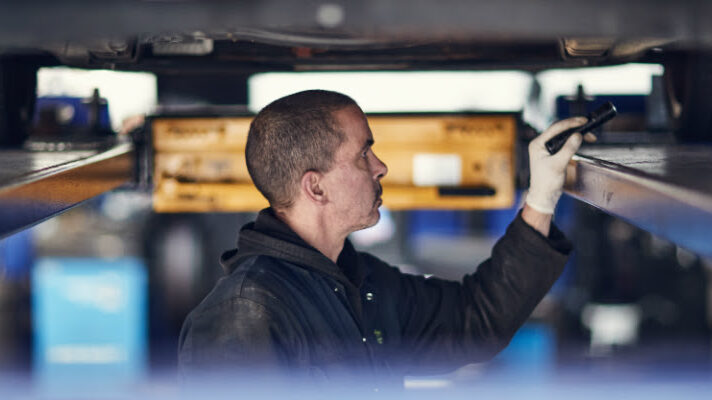With the Coronavirus crisis continuing to unfold, the Driver and Vehicle standards Agency has announced extensions to he duration of MoT certificates for some cars, vans and motorcycles.
The extensions will apply to vehicles registered across England Scotland and Wales, will continue until confirmed otherwise by the DVSA Separate arrangements exist for Northern Ireland .The DVSA also points out however that vehicles must be kept in roadworthy condition, with drivers still facing prosecution if they are found in control of an unsafe vehicle.
Cars, vans and motorcycles with an MoT due on or before March 29th 2020.
The DVSA says you must NOT take a vehicle for an MoT test if you, or someone you live with, has coronavirus symptoms, or if a group designated as extremely vulnerable to COVID-19. Broadly, the symptoms are:
- A high temperature – this means you feel hot to touch on your chest or back (you do not need to measure your temperature)
- A new, continuous cough – this means coughing a lot for more than an hour, or 3 or more coughing episodes in 24 hours (if you usually have a cough, it may be worse than usual)
More advice on these symptoms and what to do if you have them can be found here:.
If an MoT runs out while you’re staying at home, self isolating because you, or someone you live with, has coronavirus symptoms, DVSA advice is to book an MoT test AFTER the self-isolation period is over. It says the Department for Transport (DfT) is working with insurers and the police to ensure drivers are not unfairly penalised for not being able to get an MoT.
If you’re not self-isolating, or extremely vulnerable to COVID-19 risks, and your vehicle’s MoT test expiry date (or its third birthday) is on or before March 29th, no leeway has been granted – the procedures remains unchanged. You will still need to arrange an MoT in the normal way. Garages and MoT centres are amongst the businesses allowed to stay open during the current crisis, so the DVSA anticipates little difficulty in booking a test when needed..
If your vehicle tax runs out while you’re self-isolating, as usual its renewal will require a valid MoT to be held – unless your vehicle is in an exempt category.
If you’re unable to get your vehicle tested because you’re self-isolating, and both the MoT and vehicle tax expire on or before March 29th, The DVSA advice is to register the vehicle involved as off the road (SORN)
This of course means it can’t be used, so when there’s no longer a need to self-isolate, best book any necessary repairs and an MoT test as soon as possible. A vehicle may only legally be driven without tax or MoT (or both) to or from somewhere for repairs, and/or to or from a testing station for a pre-arranged MoT. Unless vehicles are under three years old or exempt from testing, they can only be taxed once an MoT test has been passed.
The full government guidance on this topic is available here:

Cars, vans and motorcycles with an MoT due on or after March 30th 2020.
From March 30th 2020, all MoT due dates for these vehicles are being extended by six months. Though of course vehicles must be kept in a safe, roadworthy condition at all times, drivers and owners will not need to do anything for the extension to be granted. Vehicles will automatically receive what the DVSA is describing as a “6-month MoT exemption,” extending whatever the current MoT expiry date is by six months. So, an MOT due to expire on, say, April 3rd 2020 will automatically be extended to October 3rd 2020 – by which time a new MoT must have been issued for the vehicle to continue in use.
A vehicle’s MoT history can easily be checked online to see when the exemption has been granted. No paper exemption certificates are being issued, and the record may not be updated straight away, so DVSA advice is to keep checking back to ensure the new MoT due date is showing. Vehicle tax renewal, where needed, will be possible as soon as the updated MoT due date is showing.
For vehicles coming round to their first MoT test at 3 years old on or after March 30th 2020, again an automatic 6-month MoT exemption will be granted, running from the date the first MoT was due. However if that first test was due before March 30th, and the vehicle fails when tested or has previously failed, a test pass will be needed for it to be driven after the original expiry date, as no extension will be granted.
The full government guidance on this topic is available here: https://www.gov.uk/guidance/coronavirus-covid-19-mots-for-cars-vans-and-motorcycles-due-from-30-march-2020
Check your vehicle’s MoT history here: https://www.gov.uk/check-mot-history
See the Guidance provided by the DVSA to MoT testers and test centres here:
https://www.gov.uk/guidance/coronavirus-covid-19-mot-centre-and-tester-guidance
MoT tests for lorries, buses and trailers.
Different temporary rules, including some MoT exemptions of up to 3 months, began for these vehicle categories on March 21st 2020. Depending on the specific vehicle, some of these exemptions require specific applications to be made: More details are available here:
https://www.gov.uk/guidance/coronavirus-covid-19-mots-for-lorries-buses-and-trailers
Dave Moss has a lifetime connection with the world of motoring. His father was a time-served skilled engineer from an age when car repairs really meant repairs: he ran his own garage from the 1930's to the 60's, while Mum was the boss's secretary at a big Austin distributor. Both worked their entire lives in the motor trade, so if motor oil's not in Dave's blood, its surely a very close thing.
Though qualified in Electronics, for Dave it seemed a natural step into restoring a succession of classic cars, culminating in a variety of Minis. Writing and broadcasting about these, and a widening range of motoring matters ancient and modern, gathered pace in the 1970's and has taken over since. Topics nowadays range across the modern motoring mainstream to the offbeat and more arcane aspects of motoring history, and outlets embrace books, websites national and international magazines, newspapers, radio programmes, phone-ins and guest appearances. Spare time: hard graft on the garage floor attending to vehicles old and new. Latest projects: that 1968 Mini Cooper S has finally moved again after 30 years, and when the paint is finished, the 1960 Morris Mini 850 will also soon be ready for the road again...

